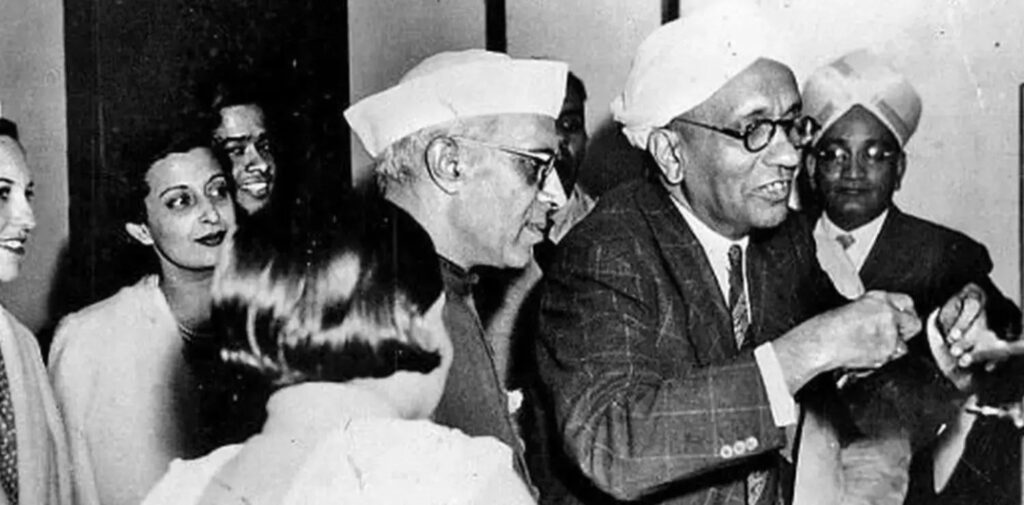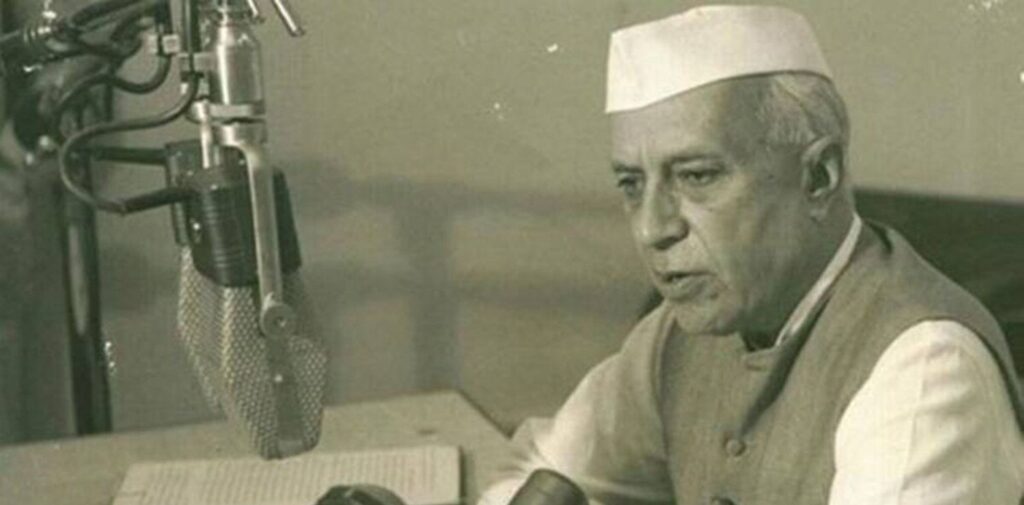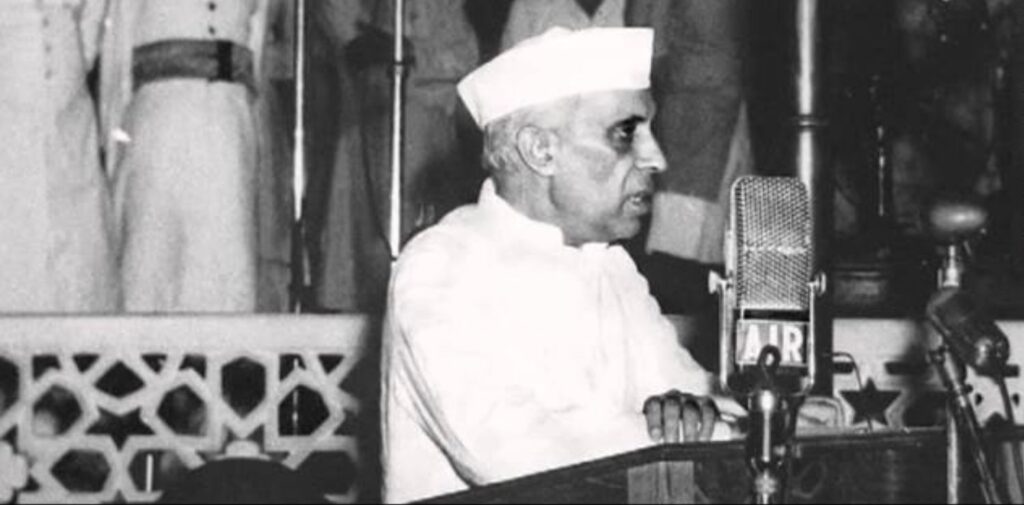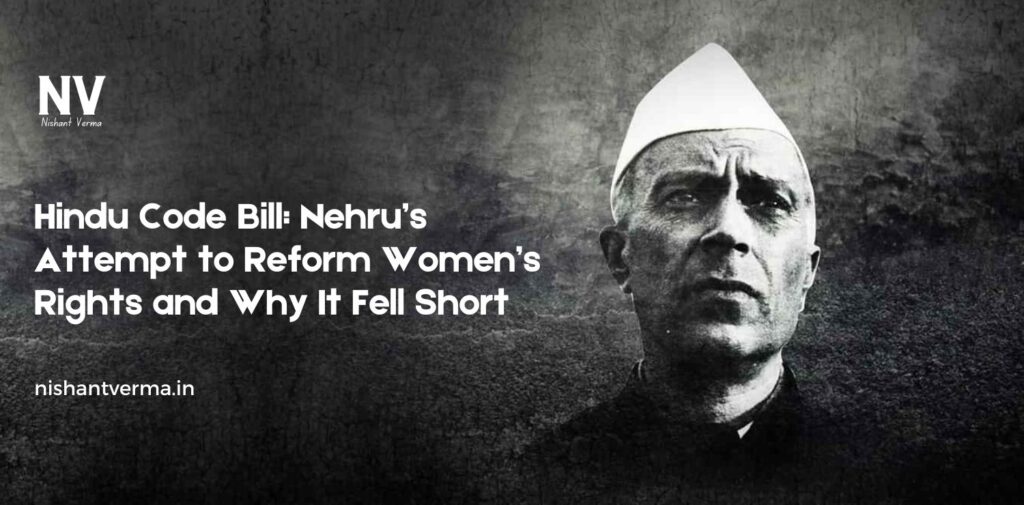After India gained independence in 1947, the country was in the process of rebuilding itself. The leaders were working hard to create a modern, democratic society that would ensure equal rights for all citizens, regardless of their gender, caste, or religion. Among these leaders was Jawaharlal Nehru, the first Prime Minister of India, who strongly believed in empowering women.
One of his significant efforts toward women’s rights was the Hindu Code Bill, a piece of legislation that aimed to give women greater rights in marriage, property, and family matters. However, despite Nehru’s intentions, the Hindu Code Bill failed to achieve its goals fully. Let’s explore why this happened and how the bill’s shortcomings left women’s rights still a work in progress.
What Was the Hindu Code Bill?
The Hindu Code Bill was a series of laws proposed in the 1950s to reform Hindu personal law in India. At that time, Hindu personal law was heavily influenced by ancient religious texts, which often placed women in a subservient role. The bill aimed to make changes that would improve the lives of women by giving them more freedom and equality in various aspects of their lives, especially within the family and marriage.
The main points of the bill included:
- Women’s Right to Property: The bill sought to give women equal rights to inheritance, allowing them to inherit property just like men.
- Marriage and Divorce: It aimed to make divorce easier and more accessible for women, who were often stuck in unhappy or abusive marriages.
- Age of Marriage: The bill proposed raising the legal age for marriage for women to 18 years, to prevent child marriage and protect young girls.
- Polygamy: It sought to outlaw polygamy (the practice of a man marrying multiple women), which was still practiced by some sections of Hindu society.

Nehru’s Vision for Women’s Empowerment
Nehru was a strong advocate for women’s rights, and he believed that the empowerment of women was crucial for the progress of the nation. He had seen the suffering of women during British colonial rule and wanted to create a society where women were free from oppression and had equal opportunities. Nehru viewed the Hindu Code Bill as a tool for modernizing Indian society and ending the deep-rooted gender inequalities.
At the time, many women in India had very limited rights. They were often denied education, confined to household chores, and had little say in the decision-making processes, even within their families. Nehru wanted to change this and give women the legal rights they deserved, believing that a society that respected women would be more progressive and prosperous.
The Hindu Code Bill Faces Opposition
Despite Nehru’s clear vision, the Hindu Code Bill met with fierce resistance from various quarters. Many conservative members of society and political leaders strongly opposed the bill. They argued that the bill went against traditional Hindu customs and religious practices. They believed that the proposed reforms would disrupt the social order and undermine family structures. These opponents were mostly from the upper-caste, patriarchal sections of society who felt threatened by the idea of women gaining more independence.
Some religious leaders also spoke out against the bill, claiming that it violated sacred Hindu scriptures and traditions. In India, Hinduism is a deeply ingrained part of cultural identity, and any change to its traditions was seen as controversial.
The opposition was particularly strong when it came to issues like women’s right to property and the abolition of polygamy. These were seen as challenges to long-standing patriarchal practices that placed men in positions of power over women. For many people, the idea of women inheriting property was unthinkable, as it would go against centuries-old customs where property passed down only through the male line.

Why Nehru’s Reform Agenda Fell Short
Despite Nehru’s strong support for the Hindu Code Bill, the bill’s passage was delayed for several years. The opposition in Parliament was intense, and Nehru struggled to gather enough support to push the bill through. In the end, the bill was broken into several parts and passed over time, with significant compromises made to placate the opponents. As a result, the reforms that were finally implemented were not as radical or comprehensive as Nehru had hoped.
Here are some reasons why Nehru’s policies ultimately fell short in achieving real empowerment for women:
- Reluctance of Religious Leaders and Conservative Groups: Many influential religious and social groups were unwilling to accept changes that would challenge the traditional social order. These groups feared that granting women more rights would disrupt family structures and weaken the authority of men. Their opposition led to several compromises that diluted the impact of the bill.
- Cultural Resistance: India’s cultural norms were deeply entrenched in patriarchal values, and many people, even in the political sphere, were not ready to challenge these norms. For example, many lawmakers still believed in the idea that women should be subservient to men in matters of inheritance, marriage, and family life.
- Failure to Address the Real Issues: The Hindu Code Bill was primarily concerned with legal rights, but it did not address the root causes of gender inequality, such as deeply ingrained societal attitudes and practices. Changing laws is important, but it is equally important to change people’s mindset. The bill’s focus on legal reforms alone was not enough to bring about lasting change in women’s lives.
- Limited Scope of the Bill: The bill only applied to Hindus, and it did not address the issues faced by women from other religious communities, such as Muslims, Christians, and Sikhs. This left a large number of women without the protection and rights promised by the bill.
- Slow Pace of Change: Even after parts of the Hindu Code Bill were passed, the changes were slow to be implemented. Many women were still unaware of their legal rights, and traditional practices continued to dominate in many parts of the country. In rural areas, women faced much greater challenges in accessing justice and asserting their rights.
What Did the Hindu Code Bill Achieve?
Despite these setbacks, the Hindu Code Bill did achieve some important reforms. One of the most significant changes was the Hindu Succession Act (1956), which allowed women to inherit property from their parents and husbands. This was a landmark shift, as it gave women legal ownership of property for the first time.
Additionally, the Hindu Marriage Act (1955) made provisions for divorce, allowing women to seek a legal separation if they were in an unhappy or abusive marriage. It also set the legal age of marriage for women at 18, helping to prevent child marriages.
The Hindu Adoption and Maintenance Act (1956) allowed women to adopt children and ensured that wives and children had the right to be supported financially by their husbands and fathers.
While these changes were important steps forward, they were not enough to address the full range of challenges that women faced in society. Social attitudes were slow to change, and women continued to face discrimination in many areas of life.

The Legacy of Nehru’s Efforts
Nehru’s efforts to reform Hindu personal law were important because they set the stage for future advances in women’s rights in India. His vision of gender equality helped raise awareness about the need for legal and social reforms. Over the years, successive governments have continued to work on improving women’s rights, and today women in India have more opportunities than ever before in education, employment, and political participation.
However, the full realization of gender equality in India is still a work in progress. The struggles for women’s rights that began with the Hindu Code Bill continue to this day, as women in India still face challenges related to violence, discrimination, and inequality. The Hindu Code Bill, though not perfect, was an important step forward in the journey toward women’s empowerment.
Conclusion
Nehru’s Hindu Code Bill was a noble attempt to bring about meaningful change in the lives of women in India. While it faced significant opposition and did not achieve all of its goals, it played a crucial role in challenging patriarchal norms and beginning the process of legal reform. Women today enjoy greater rights and freedoms because of the foundation laid by Nehru and the Hindu Code Bill. However, as we look forward, it is clear that there is still work to be done to fully realize the vision of equality that Nehru had for women in India.




